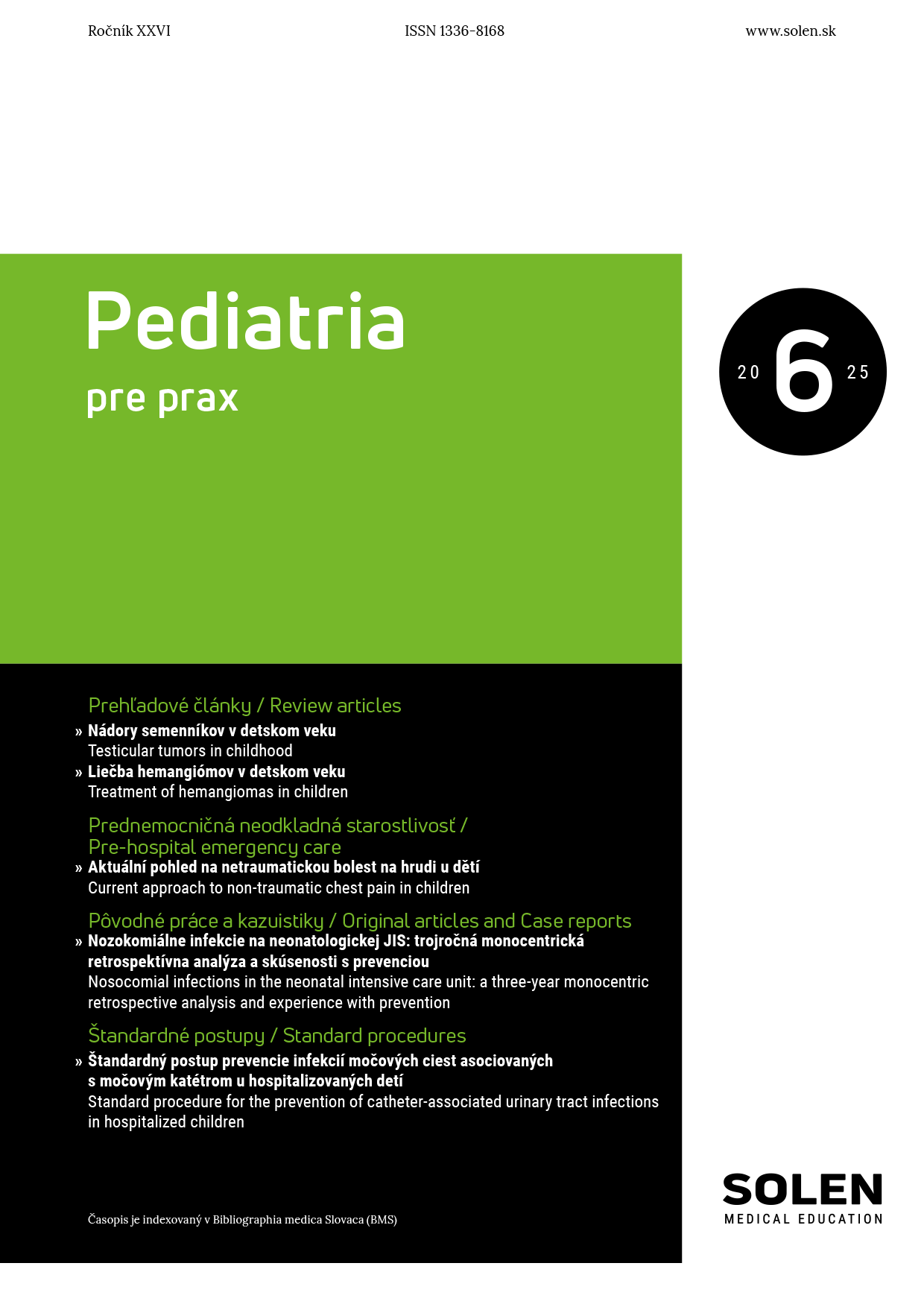Slovenská chirurgia 3-4/2018
Gastric cancer with hepatic metastases – what therapy is right?
Management of patients with hepatic metastases as the sole metastatic site at diagnosis of gastric cancer (synchronous setting) or detected during follow-up (metachronous) is controversial. The prevailing attitude in these cases is passive, leading to chemotherapy and to surgical palliation. In fact, in adequately selected subgroup of patients surgery, especially if integrated in multimodal therapeutic strategies, may achieve unexpected 5-year survival rates, ranging from 10% to 40%. The critical revision of the literature suggests that some simple clinical criteria exist that may be effectively employed in patients selection. These are mainly related to the gastric cancer (factors T, N, G) and to the extent of hepatic involvement (factor H). Upon these criteria it is possible to adequately select about 50% of cases. In the remaining 50% of cases a critical discussion on a case-by-case basis is recommended, considering that among these patients some potential long-survivors exist, that survival is strictly influenced by the ablation of the tumor bulk and by multimodality treatments including chemotherapy and that in expert institutions this kind of surgery is performed with very low mortality and morbidity rates.
Keywords: gastric cancer, hepatic metastases, hepatectomy, selection criteria, gastrectomy, chemotherapy

















